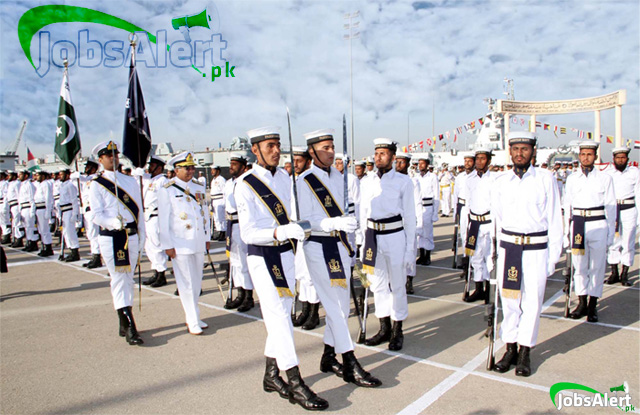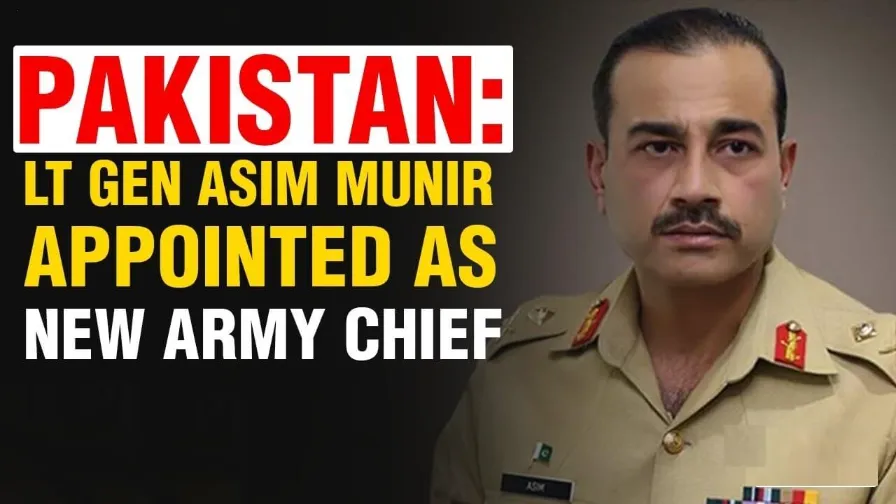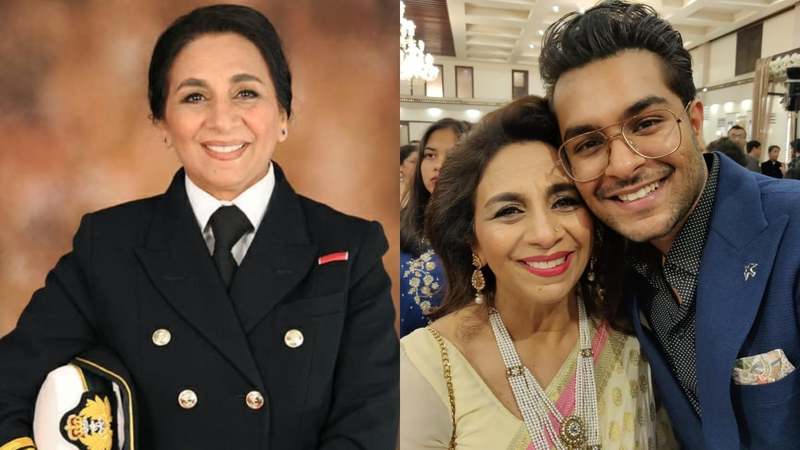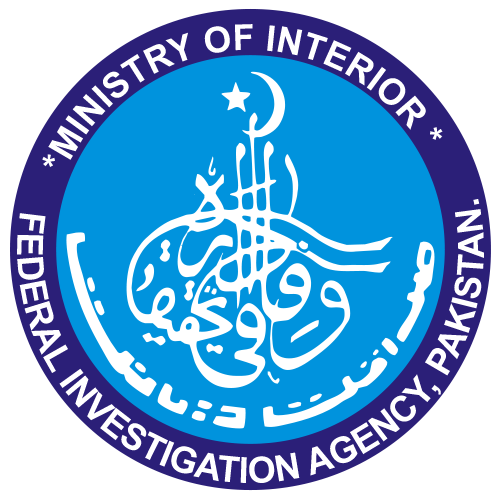List of Pakistan Navy Chiefs

The title of Chief of Naval Staff is the seniormost position a naval officer can attain and it holds the same rank and importance as the other air and army chiefs. Being one of the leaders of the Pakistani military, the post is one of the strongest and most influential in the country.
The title of was created in 1972, succeeding the Naval Commanders-in-Chief of the Pakistan Navy. Headquartered in Islamabad, the CNS is a four-star admiral appointed and nominated by the Prime Minister and confirmed by the President of Pakistan. The duties of a CNS include responsibility over the command and control of operations, logistics, combatants, and training of naval forces.
Most importantly, however, the Chief play’s a critical role in the country’s coastal defense and in conducting reconnaissance missions against aggressive forces. A standard term normally lasts 3 years with only one possible renewal, though it is quite rare. As of December 2022, there have been 17 total CNS in the country’s history, including the current title holder, Muhammad Amjad Khan Niazi. Join us as we summarize the lives and tenures of the 17 Chiefs of Naval Staff, that have been integral in ensuring the safety and sovereignty of Pakistan.
(Former & Current)
[ez-toc]Vice Admiral Hasan Hafeez Ahmed (t. 1972-1975)
| Sr.N | Date of Birth & Death | Office Tenure |
|---|---|---|
| 1 | 1926 – 1975 | 3 years, 5 days (3 March 1972 – 8 March 1975) |
Hasan Hafeez Ahmed, often called H.H Ahmed was the first Chief of Naval Staff in Pakistan who was given command over the navy after his senior and Commander in Chief Vice Admiral Muzaffar Hassan was dismissed from Military service. Hasan Hafeez Ahmed was born in 1926 in Multan, British India. After getting his primary, secondary, and high school education from a local school in Multan, H.H. Ahmed joined the Royal Indian Navy in 1943. After helping with the war effort during World War II, he joined the Britannia Royal Navel College in Dartmouth, England, and graduated right at the time of the 1947 Independence.
He subsequently joined the Pakistan Navy and continued his training in England. Upon his return to Pakistan, he held high-ranking roles as Director of Naval Operations and Rear-Admiral during the 2 Indo-Pakistan wars. A year later, he was elevated to Chief of Naval Staff while remaining a 3-star admiral and superseding 5 seniors. As the Naval Chief, he reconstructed the whole of the Pakistani Naval force, commissioning the naval aviation and establishing a new NHQ in Rawalpindi which was near the Army GHQ. He suddenly died in 1975 due to illness, making him the first of only 2 Naval Chiefs that passed while in office. He was succeeded by Mohammad Shariff.
Admiral Muhammad Shariff (t. 1975-1979)
| Sr.N | Date of Birth & Death | Office Tenure |
|---|---|---|
| 2 | 1920 – 2020 | 3 years, 363 days (23 March 1975 – 21 March 1979) |
Muhammad Sharif was a highly decorated naval officer and the 2nd Chief of Naval Staff. His involvement in the country’s history goes far beyond his work as the Naval Chief however. Admiral Muhammad Shariff was also the 2nd Chairman of the Joint Chiefs of Staff Committee (t. 1977-1980) and Chairman of the Federal Public Service Commissions (t.1980-1986). We will be focussing solely on his early life and tenure as the Chief of Naval Staff as his contributions are outside the scope of this article but merit a deeper dive. Muhammad Shariff was born in Gujrat, British India in 1920. As a young officer, he had participated in World War II and after independence, he climbed up the ranks to become a Captain by the time of the first Indo-Pakistan Wars.
He played a very important role during the East-Pakistan turmoil and the second Indo-Pakistan war. He was present during the surrender as the only Admiral and held taken as a prisoner of War. He was released after 2 years in prison and promoted to Vice-Admiral as the Vice-Chief of Naval Staff. After Hasan Hafeez’s sudden death, he was the natural successor and became the first four-star-ranked Admiral in the country’s history. He was later appointed as acting Chairman of the Joint Chiefs of Staff Committee but was soon promoted to become the 2nd official Chairman due to his support of Zia’s martial law. After a 4 year tenure as CONS, he recommended Karamat Rehman Niazi to be his successor. He remained a critical figure during the Soviet-Afghan war. After officially retiring in 1988, he lived a peaceful life in Islamabad until his eventual death in April 2020, aged 99.
Admiral Karamat Rehman Niazi (t.1979-1983)
| Sr.N | Date of Birth & Death | Office Tenure |
|---|---|---|
| 3 | (? – 2021) | 4 years, 1 day (22 March 1979 – 23 March 1983) |
Karamat Rehman Niazi, better known as K.R. Niazi served as the 3rd Chief of the Naval Staff after CNS Muhammad Sharif’s retirement. His tenure is best most closely associated with the use of submarines in the Pakistani fleet with Karamat himself being renowned as the commander of the submarine PNS Ghazi. He was born in Hirashpur, British India around 20 years before the 1947 independence. He was commissioned in the Pakistan Navy after graduating from a local college in 1948. After training at the Brittania Royal Naval College in Dartmouth, UK, he returned to Pakistan and quickly progressed through the ranks. As lieutenant commander, he received training from the US for submarine operations so when the PNS Ghazi was commissioned in the Navy, he was appointed commander.
Niazi subsequently became the first commanding officer of the first submarine in 1963. He commanded numerous operations as the commander of the PNS Ghazi until 1967 when he was promoted to Captain. He participated in the second Indo-Pakistan war in 1971 and started attending the National Defense University for a master’s degree in strategic studies in 1972. By 1977, he was vice-Admiral and appointed as the Vice Chief of Naval Staff so after Muhammad Shariff retired, Niazi was promoted to four-star rank Admiral and Chief of Naval Staff. He was instrumental in introducing anti-submarine warfare methods and as a martial law administrator helped stabilize the administration during President Zia. Niazi also contributed during the Soviet invasion of Afghanistan and helped arm the mujahideen. He later retired in 1983, handing over command to Admiral Tariq Kamal Khan. He passed recently in 2021.
Admiral Tariq Kamal Khan (t.1983-1986)
| Sr.N | Date of Birth & Death | Office Tenure |
|---|---|---|
| 4 | (1930 – ) | 3 years, 17 days (23 March 1983 – 9 April 1986) |
Tariq Kamal Khan, also known as T.K Khan is a retired four-star admiral, High Commissioner (1986-1992), and Ambassador (1993-1995). He was the 4th Chief of Naval Staff, succeeding Karamat Rehman Niazi in 1983. T.K Khan was born in 1933 in Jhelum, British India, completing his early education at Presentation Convent in Murree and higher education at St Anthony’s High School. He joined the Pakistani Navy in 1951 and trained at the Royal Navel College in Dartmouth, UK like many of his predecessors. He returned and attended Karachi University for his bachelor’s degree. By this time, T.K Khan was a sub-lieutenant. He trained in an underwater swimming and demolition school and worked in multiple submarines such as the PNS Badr, PNS Mubarak, and PNS Alamgir.
He served in the first Indo-Pakistan wars of 1965 on the PNS Shah Jahan. Just 4 years later he was promoted to commander and became the commanding officer of the PNS Jahangir. He participated in the second Indo-Pakistan wars where he was taken as a prisoner of war. After 2 years in prison, he finally returned and was soon promoted to Captain. By 1978, he was a Commodore but just 2 years later, Commodore Tariq Kamal Khan was promoted to 3-star rear-admiral. As rear admiral, he was appointed Commander Karachi until 1983 when CONS Karamat Rehman Niazi retired. Zia appointed Tariq Kamal as the next and 4th Chief of Naval Staff, which was a rather controversial decision.
Tariq Kamal superseded the VIce-CONS and 2 other senior officers, mostly due to his closeness with the President. Now a 4-star rank admiral, T.K Khan aimed to better bilateral relationships with China and helped procure a new Mirage V aircraft from France for the air force. He also created a program to replace the old and scrap warships with newer models. He then retired in 1986, handing over the command to his Vice-CONS, Vice Admiral Iftikhar Ahmed Sirohey. Since then he was served as High Commissioner of Pakistan to Australia, and Pakistan Ambassador to Australia.
Admiral Iftikhar Ahmed Sirohey (t.1986-1988)
| Sr.N | Date of Birth & Death | Office Tenure |
|---|---|---|
| 5 | (1934 – ) | 2 years, 214 days (9 April 1986 – 9 November 1988) |
Iftikhar Ahmed Sirohey is a retired 4-star rank admiral and Chairman of the Joint Chiefs of Staff Committee. He succeeded admiral Tariq Kamal Khan to become the 5th CONS and after his tenure, his ascension to Chairman made him the only CONS after admiral Shariff to hold that office. Iftikhar was born in 1934 in Karnal, British India. After graduation, he was commissioned into the Pakistan Navy, leaving Karachi University in 1951.
He was sent to the Royal Naval College in Greenwich, England and he returned to Pakistan in 1956. Due to his education, he was inducted into the Engineering branch of the Navy as a Sub-lieutenant. From 1958-1964, he joined the submarines PNS Badr and PNS Khalibar. He also acted once as a military advisor to the Iranian Navy. Iftikhar participated in the 1965 Indo-Pakistan wars and acted as the second-in-command to Commodore Iqbal F. Qaudir during the naval bombardment in Dwarka.
He was then given command of the PNS Tughril but not for long. He returned to the PNS Alamgir during the 1970 turmoil in East Pakistan and for 3 years, served as the aide-de-camp for the Commander in Chief of the Nacy Syed Mohammad Khan (the precursor to CONS). After numerous commissions, promotions, and a master’s degree from NDU, Iftikhar was promoted to rear-Admiral and by 1985, ascended to Vice-Chief of Naval Staff. The following year, President Zia announced that Vice-ADmiral Iftikhar Ahmad Sirohey would become the new CONS. As CONS, he procured many military warships from the US Navy and bettered military relations with China. He also contributed to the restoration of democracy, baking COAS Mirza Aslam Baig after the death of Zia. He retired soon after Benazir Bhutto came to office. He was then assigned the Chairman of the Joint Chiefs of Staff Committee. He currently teaches at the Institute of Strategic Studies.
Admiral Yastur-ul-Haq Malik (t.1988-1991)
| Sr.N | Date of Birth & Death | Office Tenure |
|---|---|---|
| 6 | (1931 – ) | 2 years, 363 days (10 November 1988 – 8 November 1991) |
Yastur-ul-Haq Malik is a retired 4-star rank admiral who was the 6th COANS, succeeding Iftikhar Ahmad Sirohey who was elevated to Chairman of the Joint Chiefs of Staff Committee. Yastur-ul-Haq was born to a military family in 1931 in Peshwar, British India. He attended Saint Patrick’s College in Karachi and enrolled in the Pakistani Navy. After initial training at the Pakistan Military Academy, he was sent to train at the Brittania Royal Naval College in Dartmouth, England. By the time he returned in 1958, he was promoted to Lieutenant and joined the PNS Badr staff.
For a short time, he even acted as aide-de-camp to President Ayub Khan. He went on to participate in both Indo-Pakistani wars and received further training from the Air Wall College and the NDU, from which he earned his master’s degree in Defence studies. Following this, Yastur-ul-Haq served as Pakistan Fleet commander and Vice Chief of Naval for 2 years before being appointed s Chairman of the Pakistan National Shipping Corporation. Though he was no longer VCONS. Prime Minister Benazir Bhutto announced Yustur-ul-Haq to be appointed the next CONS. During his tenure, he commissioned the PNS Ahsan, the naval base situated in Balochistan. He retired 2 years into his term, leaving the command to his Vice-CONS, Vice-admiral Saeed Mohammad Khan.
Admiral Saeed Mohammad Khan (t.1991-1994)
| Sr.N | Date of Birth & Death | Office Tenure |
|---|---|---|
| 7 | (1935 – 2022) | 3 years, 0 days (9 November 1991 – 9 November 1994) |
Saeed Muhammad Khan, also called the Beast of the Sea, was a 4-star rank admiral and Chairman of the National Shipping Corporation, much like his predecessor Admiral Yustur-ul-Haq Malik. He was born in 1935 in Bhopal, British India. He was commissioned to Pakistan Navy in 1954 and was soon sent to train at HMS Dryad in the UK. After his return and as a sub-lieutenant, S.M Khan served aboard the PNS Tariq, the ship he would soon be commanding. He participated in both the Indo_pakistan wars and earned his nickname of the Beast of the Sea. By 1984, Saeed Muhammad was no Vice-admiral and the Vice-CONS under Yastur-ul-Haq Malik.
As the VCONS, he was responsible for the naval warfare exercises and command structure. He also showed support for COAS Mirza Aslam Baig’s mission to resurrect democracy after Zia’s death. After Yastur-ul-Haq left his office as Chairman of the Pakistan National Shipping Corporation to become the CONS, Saeed Mohammad Khan would take his place. Then in a manner almost identical to Yastur-ul-Haq himself, Saeed Mohammad Khan was announced to be the next CONS. It was during his tenure when the Pressler amendment came into effect and the navy lost 3 US surface ships. But Admiral Saaed Muhammad did manage to close a deal with the British Government to procure the Tariq-class destroyers. After retiring in 1994, Saeed Muhammad Khan handed over the command to the then Chairman of the Pakistan National Shipping Corporation Mansurul Haq. He served as Pakistan’s Ambassador to the Netherlands for 4 years before finally retiring. He very recently passed away aged 87 on the 4th of December 2022.
Admiral Mansurul Haq (t.1994-1997)
| Sr.N | Date of Birth & Death | Office Tenure |
|---|---|---|
| 8 | (1931–2018) | 2 years, 173 days (10 November 1994 – 1 May 1997) |
Mansurul Haq is a notorious figure in the country’s naval history. Controversy and allegations of corruption plagued his life, during and after his tenure. It was these very allegations that had him forcibly removed as CONS and stripped of his rank. Mansurul Haq was born in 1937 Sialkot, British India. He attended Murray College after his matriculation and was commissioned to the Pakistani Navy in 1954. He was sent to Brittania Royal Naval College in England like many before him and after returning in 1956, he left for training again at the HMS Excellent in Portsmouth.
After graduating in 1958, Mansurul Haq was promoted to sub-lieutenant. He then went on to participate in both Indo-Pakistani wars but he was captured as a prisoner of war and released a few years later. Upon his release, he once again went abroad to train, this time to attend the Naval War College in Rhode Island, US. After returning, the then Captain Mansurul Haq served as the Assistant Chief of Naval Staff for a brief period. Soon he attained the ranking of Commodore, followed by the 2-star rank of rear-admiral. He subsequently became a senior fleet commander and Commander in Karachi. Haq was also appointed as Chairman of the National Shipping Corporation and served his role until a civilian bureaucrat filed against his tenureship at the Sindh High Court. At the time, Prime Minister Nawaz Sharif’s privatization policy with the then CONS S.M. Khan was underway, a policy Mansur was adamantly against.
He became the next CONS after Benazir came back to power but this decision that ended Mansur’s plans for retirement led to his many controversies. Admiral Saeed Muhammad Khan and Admiral Mansur together oversaw the technology transfer between Pakistan and France. With NawazSharif back in power and his anti-corruption policies in place, both Admirals were arrested and Mansur was stripped of his rank and awards due to the many corruption charges that had piled up against the 2 regarding their involvement in the technology transfer. He soon fled to the UAE and this case consumed most of his remaining life, with his passing of a heart attack in 2018 in Dubai aged 80.
Admiral Fasih Bokhari (t.1997-1999)
| Sr.N | Date of Birth & Death | Office Tenure |
|---|---|---|
| 9 | (1942 – ) | 2 years, 153 days (2 May 1997 – 2 October 1999) |
Fasih Bukhari is another well-known figure in the Pakistani Navy. He is best recognized for his pacifism and voluntary retirement as CONS in response to General Musharraf’s attack on India at Kargil and his plans for martial law. Fasih Bokhari was born in 1942. He was commissioned in the Pakistan Navy in 1959 and sent to the Brittania Royal Naval College for training. He served on the PNS Ghazi under then Commander and future CONS Karamat Rehman Niazi. He participated in both Indo-Pakistan wars and gained notoriety for his valor and navigation skills during the latter 1971 wars while serving on the PNS Hangor.
He then underwent further training in France, a new deployment in the PNS Mangro, and he even completed a war assignment in the Ministry of Defense. Fasih Bukhari continued his education at the Armed Forces War College and NDU where he studied under the future COAS Jehangir Karamat. By 1995, he had become Vice-Admiral Bokhari and he now commanded the Pakistan fleet. He was soon elevated once again, now to Vice-CONS. After the dismissal of Admiral Mansurul Haq, Fasih Bokhari was promoted to 4-star rank admiral and made the 9th Chief of Naval Staff. As the chief, he encouraged analytical thinking among his subordinates and made numerous attempts to reconstruct the Navy.
He also helped establish a new naval base in Balochistan. He was adamantly opposed to nuclear testing. In the end however, the whole committee’s opinions were disregarded when Prime Minister Nawaz Sharif gave the green light for nuclear testing on his own. In retaliation, the whole Committee resigned. After General Musharraf announced his strategy to take back Kashmir with a surprise armed conflict, Fasih adamantly questioned Musharraf’s strategy and made known his opposition to the Kargil plan. However, the Kargil war took place despite his pleas. He remained part of the military until Prime Minister Nawaz announced General Parwez Musharraf to be the next COAS and Chairman of the Joint Chiefs of Staff Committee. He subsequently resigned, not wanting to participate in Musharraf’s dirty games. His resignation broke the camel’s back and soon after, Musharraf launched his coup and established martial law in 1999. He was later chairman of NAB for a few years and he passed away in 2020.
Admiral Abdul Aziz Mirza (t.1999-2002)
| Sr.N | Date of Birth & Death | Office Tenure |
|---|---|---|
| 10 | (1943 – ) | 3 years, 0 days (2 October 1999 – 2 October 2002) |
Abdul Aziz Mirza served as the 10th Chief of Naval Staff after Fasih Bokhari’s resignation as Parwez Musharraf was made Chairman of the Joint Chiefs of Staff Committee. He also served as Pakistan’s ambassador to Saudi Arabia. Abdul Mirza was born in Rawalpindi, British India in 1943 to a military family. After attending a local high school, he enrolled in Military College, getting commissioned into the Pakistan Navy after graduation.
He attended the Pakistan Military Academy alongside Pervez Musharaff and the two became lifelong friends. He received training at the Naval Academy in Turkey and after returning, he continued his training in many disciplines. Abdul Aziz Mirza, as Lieutenant participated in both Indo- Pakistan wars. He continued his training after these conflicts and joined the French War College for his master’s degree. He taught at the Naval War Collee in Karachi for a few years before being posted at the NHQ. After many assignments, Abdul Aziz acquired the rank of rear admiral in 1994. While working with president Benazir Bhutto during the technology transfer with France, Aziz became familiar with many politicians and bureaucrats.
By 1997, he was the Vice Chief of Naval Staff. Then the Kargil incident occurred and Fasih Bukhari soon retired. In support of his friend Musharraf’s martial law, Abdul Aziz Mirza was promoted to 4-star rank admiral and made the new Chief of Naval Staff. He was also made a member of the National Security Council. As the CONS, Admiral Abdul Mirza is best known for his project to construct Agosta-90B Khalid-class warships and under his initiative, the first indigenous submarine in Pakistan was constructed. Though mostly in support of Parvez’s decisions, he questioned his policies towards terrorism regarding West Pakistan but was threatened by his difference of opinion. Then in late 2002, he retired, handing over command to Admiral Shahid Karimullah. After his military career, he became a diplomat and later a corporate CEO.
Admiral Shahid Karimullah (t.2002-2005)
| Sr.N | Date of Birth & Death | Office Tenure |
|---|---|---|
| 11 | (1948 – ) | 3 years, 4 days (3 October 2002 – 6 October 2005) |
Shahid Karimullah is a retired 4-star rank admiral and diplomat who was the 11th Chief of Naval Staff after Admiral Abdul Aziz Mirza’s retirement. Shahid Karimullah was born into a military family in Karachi, Pakistan 1948. After getting his intermediate-level education from a local high school, Shahid attended the D.J. Science College before joining the Navy.
He received his training from the Pakistan Military Academy and the Royal Navy’s HMS Mercury in the UK. He participated in the 1971 Indo-Pakistan war and he was taken as a war prisoner after Pakistan’s surrender. After returning from war, he continued his studies at the Naval War College in Rhode Island, US, and at NDU. He worked closely with previous CONS, serving as the aide-de-camp to the Chairman of the Joint Chiefs of Staff Committee and former CONS Karamat Rehman. He even once served as directing staff at NDU. By 1997 he had attained the rank of Commodore with quick promotions following soon after.
By 2001, Shahid Karimullah was promoted to Vice-admiral with command over the Pakistan fleet. He was appointed as the next CONS, superseding 2 officers, including the Vice-CONS. As the Naval Chief, Admiral Shahid Karimullah oversaw a technology transfer with China and urged for nuclear navy capabilities. This was followed by his recommendation for the second strike capability in fear of the growing Indian Navy but both times, his concerns were ignored. He then lead a combined maritime force with the US Navy and soon before retiring, he urged the government to expand Pakistan’s seaborne border, a proposition that came to pass much later in 2015. After retiring, Admiral Afzal Tahir became Naval Chief. After his military career came to an end, he served as the Pakistan Ambassador to Saudi Arabia.
Admiral Afzal Tahir (t.2005-2008)
| Sr.N | Date of Birth & Death | Office Tenure |
|---|---|---|
| 12 | (1949 – ) | 3 years, 0 days (7 October 2005 – 7 October 2008) |
Muhammad Afzal Tahir is a retired 4-star rank Admiral, writer, and military historian who served as the 12th Chief of Naval Staff. He was born in Faislabad, Pakistan in 1949. After graduating from a local high school, he joined the Pakistan Navy and completed his training at the Pakistan Military Academy. He participated in the 1971 Indo-Pakistan war as a lieutenant and later joined naval aviation. He continued training and was appointed as flag lieutenant to CONS Admiral Keramat Rehman Niazi. He was even appointed in Qatar for a time and promoted to Commander by 1985. He assumed control over naval base PNS Mehran in 1990 as a captain before he enrolled in NDU for his master’s degree.
As commodore, he worked at the ISI, procuring information during the Kargil conflict and the 1999 Parvez Musharraf coup. He sided together with Admiral Shahid Karimullah believing the second strike capability would give Pakistan an edge. By 20023, Afzal Tahir had been promoted to 3-star rank vice-admiral. Then in 2005, Parvez Musharraf announced that the 12th CONS that succeeded Shahid Karimullah would be Admiral Muhammad Afzal Aziz. He superseded the Vice-CONS but kept him in his role during his tenure. He retired in 2008 and was replaced by Admiral Noman Bashir.
Admiral Noman Bashir (t.2008-2011)
| Sr.N | Date of Birth & Death | Office Tenure |
|---|---|---|
| 13 | ( – ) | 3 years, 0 days (7 October 2008 – 7 October 2011) |
Noman Bashir was the 13th CONS of the Pakistan military. He succeeded Admiral Muhammad Afzal Tahir on the recommendation of Defense Minister Ahmad Mukhtar. Noman Bashir got his start in the Pakistan Navy after graduating from the Army Burn Hall College in Abottabad and being accepted into the Pakistan Naval Academy in 1971. Noman Bashir served on the western front during the 1971 Indo-Pakistan wars.
After the war, he trained further at the Air Force Academy and joined Naval aviation as a combat helicopter pilot. He then completed his master’s from NDU and even taught come courses but his training soon resumed, this time in the Royal College of Defense Studies in the UK. By 1995, Noman Bashir commanded the PNS Tariq and by 2000, he even served as commodore-in-charge of the Jinnah Naval Base in Balochistan. Eventually in 2003. He acquired a one-star rank. Then from 2003-2008, he held numerous posts and got promoted to 3-star-rank vice-admiral. When the time came to replace Admiral Afzal Aziz, Noman Bashir was selected on the recommendation of the Defence Minister and with the approval of President Asif Ali Zardari.
There were some controversies during his tenure, including the Indo-Pakistan standoff of 2008 but more notably, the PNS Mehran attack that left many sailors and officers dead, along with all the damages to the base. Many blamed Noman Bashir for not interpreting Al Qaeda’s revenge plan after the killing of Osama Bon Laden. He did however win back the people’s approval when he expanded the role of the navy across the country in an attempt to reduce the rampant terrorism, which proved successful. He also commanded a cross-border operation to retrieve Pakistan nationals from Somalia. Even till the last days of his tenure, he was directing and supervising the navy’s first UAV squadron in Karachi. He retired in 2011 and was famously snubbed from becoming Chairman of the Joint Chiefs of Staff Committee, even though he was the senior most member.
Admiral Asif Sandila (t.2011-2014)
| Sr.N | Date of Birth & Death | Office Tenure |
|---|---|---|
| 14 | (1954 – ) | 2 years, 360 days (8 October 2011 – 3 October 2014) |
Mohammad Asif Sandila is the highly-decorated former CONS. He succeeded Noman Bashir at the request of Prime Minister Yousaf Raza Gillani. He was born in Sheikhupura, Punjab, Pakistan in 1954. He attended Cadet College Kohat and joined the navy in 1972. He trained at the Pakistan Naval Academy and Brittania Royal Naval College in Dartmouth, UK. After returning to Pakistan, he continued his training this time in anti-submarine operations on the PNS Jehangir. Then in a torpedo operation at the PNS Badr.
He got his further education from the Naval War College in Lahore, Naval Staff College in Indonesia, and NDU. He also taught a few courses at the Quaid-i-Azam University and Pakistan Naval Academy. By 1988, Asif Sandila was a commander, serving as aide-de-camp to Admiral Iftekhr Ahmed Sirohey. He commanded missions and was part of multiple operations including rescue efforts in the Maldives where he was accredited for saving more than 270 European tourists after a deadly tsunami.
In the following year 2005, he was promoted to a 2-star rank and Asif served as the Director-General of the Pakistan Maritime Security agency for 2 years. He was posted in the NVQ numerous times between 2007 and 2008 and he was present during the 2008 military standoff. By 2010, he was promoted to a 3-star rank and elevated once again in 2011 to become the Vice-CONS. In 2011, Vice-Admiral Asif Sandila was selected to become the 14th CONS and under his tenure, the changed the Navy’s focus to seaborn operations involving the CTF-150 and the CTF-151. He retired in 2014 and went on to establish the Moawin Foundation, promoting literacy and establishing schools around the nation.
Admiral Muhammad Zakaullah (t.2014-2017)
| Sr.N | Date of Birth & Death | Office Tenure |
|---|---|---|
| 15 | (1958 – ) | 3 years, 2 days (4 October 2014 – 6 October 2017) |
Muhammad Zakaullah is a retired 4-star rank admiral who served as the 15th Chief of Naval Staff. He was a world-class sailor, even representing Pakistan at the Olympics. He was born in 1958 in Faisalabad, Pakistan. He graduated from the Cadet College Hasan Abdal and subsequently joined the Navy. He received his training from the Pakistan Naval Academy and the Royal Naval Staff College in the UK. While there, he also attended the London university, earning his master’s degree. Muhammad Zakaullah continued his education at Quaid-i-Azam University and even taught some courses at NDU.
He first served in the PNS Babur before eventually commanding it. He would quickly climb through the ranks and commodore Muhammad Zakaullah also became the first Director General of NAB, a post he held for 4 years. He conducted many other operations however, including the Somalian piracy case. During the height of the INdo-Pakistan skirmishes of 2013, Vice-admiral Zakaullah maintained Pakistan’s integrity and willingness to meet the threats at the border.
He was selected to be the next Chief of Army Staff the following year. Under his tenure, he improved military relations with the Turkish Navy and finally introduced the second-strike capability to the Navy. But most importantly, he worked on the economic aspect of the navy, revolutionizing and improving the economic corridor with China. He retired in 2017.
Admiral Zafar Mahmood Abbasi (t.2017-2020)
| Sr.N | Date of Birth & Death | Office Tenure |
|---|---|---|
| 16 | ( – ) | 3 years, 0 days (7 October 2017 – 7 October 2020) |
Zafar Mahmood Abbasi is the second most recent CONS. He had joined the Navy after graduating from the Cadet College Hasanabdal. He got his further education from the Pakistan Naval Academy and he received his initial training from the Brittania Royal Navel College in the UK. He also underwent underwater warfare training from the US. But his education didn’t stop there. He went on to graduate from the Royal Australian Naval College and attained his master’s from NDU.
Zafar Abbasi held numerous posts throughout the 2000s including commandant of the Naval Academy and commanding officer of the PNS Kaliber. By 2010, he already had a 2-star rank. Then just 3 years later. Rear-admiral Zafar Mahmood was appointed Commander of the Karachi Coast and Flag officer commanding the Pakistan marines. In the following year, Zafar gained another promotion, now acting as Vice admiral. He was a contender to be appointed the CONS in 2014 but Muhammad Zakaullah ascended instead. Then right before his promotion to CONS, Zafar took over the office as the Vice-COAS. When he was selected, he superseded no one. He retired in 2020.
Admiral Amjad Khan Niazi (t.2020-2023)
| Sr.N | Date of Birth & Death | Office Tenure |
|---|---|---|
| 17 | ( – ) | 7 October 2020 – 7 October 2023 |
Amjad Khan Niazi is the current Chief of Naval Staff in the Pakistani military, being the 17th holder of the mantle. He received initial training from the Pakistan Naval Academy and has held numerous pots since his graduation in 1987. He was the commanding officer at the PNS Badr and Tariq, as well as serving as the commandant at the PNS Bahadur. He was also Commandant of the Pakistan Navy War College. Before his selection to be the 17th CONS, he also served as the secretary and as the director-general of Naval Intelligence. He ascended to the 4-star rank of admiral in 2020 and succeeded Admiral Zafar Mehmood Abbasi. He retired in October 2023.
Vice Admiral Naveed Ashraf (t.2023-incumbent)
| Sr.N | Date of Birth & Death | Office Tenure |
|---|---|---|
| 18 | ( – ) | 7 October 2023 – Incumbent |
Admiral Naveed Ashraf is an Admiral and a Flag Officer in the Pakistan Navy who is currently serving as Chief of the Naval Staff at Naval Headquarters Islamabad. He graduated from the Pakistan Naval War College, The National Defence University, and the Naval War College US. He obtained his military education from the Royal College of Defence. He was commissioned in Pakistan in 19889 at the operations branch and now he is the 18th Naval Chief to serve the Nation by protecting the country from enemies at sea. He is going to retire in October 2026.
Important links
- Complete List of Jobs to Join Pak Navy
- How to Join Pakistan Navy as a PN Cadet








